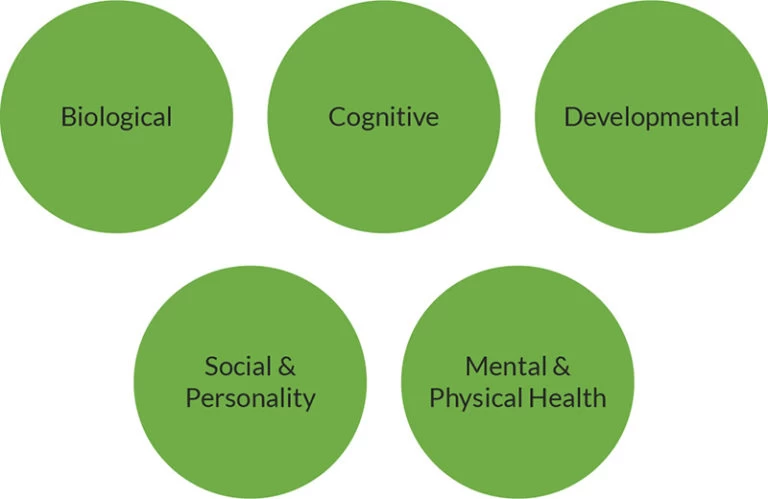Counselling & Psychology
What is not a major field in psychology?
It’s a simple question. What is not a major field in psychology? A quick search on Google gives me a few queries. Let’s take two sample questions from there.
- We have four options.
1. Cognition
2. Sociocultural
3. Behaviourism
4. Actionism
Answer: Actionism
Let’s take another popular MCQ floating on the internet. Same question, different options.
1. Psychoanalytic
2. Sociocultural
3. Behaviourism
4. Totalism
Answer: Totalism
This question is so prevalent on the internet that it got me thinking if people are aware that a 10-15 minutes reading can answer this question in vivid detail. They won’t be so confused that they have to post the question and wait some time for someone else to answer it.
So that’s my goal today. Answering “what is not a major field in psychology?” in such a way that wherever you encounter this question anywhere in your life, you can find all the possible answers in a single place- this page.
 How To do a Psychology Course?
How To do a Psychology Course?
Table of Content
- What is not a major field in psychology?
- What are the major fields of psychology today?
- Abnormal Psychology
- Behavioural Psychology
- Clinical Psychology
- Cognitive Psychology
- Community Psychology
- Counselling Psychology
- Comparative Psychology
- Cultural Psychology & Cross-cultural Psychology
- Developmental Psychology
- Educational Psychology
- Engineering Psychology or Human Factors Psychology
- Environmental Psychology
- Evolutionary Psychology
- Experimental Psychology
- Forensic Psychology
- Health Psychology
- Industrial-organizational Psychology
- Neuropsychology
- Perceptual Psychology
- Personality Psychology & Psychoanalysis
- Psycholinguistics
- Psychometrics & Measurement Psychology
- Rehabilitation Psychology
- School Psychology
- Social Psychology
- Sports Psychology
- Conclusion
- What to Read Next:
What is not a major field in psychology?
You’re probably thinking- there must be a revolutionary way to answer the question. Actually- no.
It’s simple. If you know the major fields of psychology, you’ll immediately identify the ones that are not. So, that’s what we will discuss today: the major fields or branches of psychology.
Let’s dive right in.
Modern psychology is a hybrid science. The word psychology literally means “the study of the mind”. It has its root so far back that we can actually identify people who were psychologists before this field was even established as a formal academical field.
Some famous psychologists-
- Plato (428 to 347 BCE). Greek philosopher. He argued for the role of nature (biological origin) in psychological development.
- Aristotle (384 to 432 BCE). Greek philosopher. He argued for the role of nurture (learned through experiences) in psychological development.
- Thomas Hobbes (1588 to 1679 CE). English philosopher. As you may have guessed, the first psychologists were philosophers.
- René Descartes (1596 to 1650). French philosopher.
- John Locke (1632 to 1704). English philosopher.
- Jean-Jacques Rousseau (1712 to 1778). French philosopher.
- Charles Darwin (1809 to 1882). British naturalist. His theory of natural selection influenced the functionalist school and the field of evolutionary psychology.
- Sigmund Freud (1856 to 1939). Austrian psychologist. Father of the field of psychodynamic psychology. Although Wilhelm Wundt is known as the father of psychology, Sigmund Freud is famous for psychoanalysis.
There’s a reason why I cherry-picked these particular names. There’s a very high chance that you’re familiar with all of them. They all contributed to the field of psychology as we know it today. So, exactly how many are there?
Many!
I said before that psychology is a hybrid science. It’s still evolving. Science never stops. So this evolution will never stop either. But if we talk about the present day, you can isolate the major fields in today’s psychology with relative ease.
Let’s discuss them briefly in an alphabetical manner.
What are the major fields of psychology today?
Abnormal Psychology
Abnormal psychology is the study of psychopathology, abnormal behaviour, thoughts, or emotions. Behavioural patterns that don’t comply with societal norms are considered abnormal behaviour. Mental illness like schizophrenia is such an abnormal behaviour too.
Counsellors, clinical psychologists, and psychotherapists often work directly in this field.
Behavioural Psychology
Behavioural psychology is also known as behaviourism. It studies and analyses the observable behaviour of humans and animals. It’s one of the oldest branches of psychology and is basically a learning theory based on the idea that all behaviours are acquired through conditioning. It studies why we behave the way we do and predict what we will do next.
Behavioural psychology dominated the field of psychology in the early twentieth century, but it became less prominent afterwards, particularly during the 1950s. Many modern scientists find the field to be too simplistic to describe and predict human behaviour.
You can check out our other blog, “How to Become a Mental Health Support Worker?”
Clinical Psychology
Clinical psychology is one of the, if not the most, popular fields of psychology. They provide healthcare to patients who are suffering from mental illness. Moreover, they observe, interview and test their patients and then diagnose the problem. Even, they use psychoanalysis, a psychological theory and form of therapy for treating mental disorders in patients.
This type of psychology is often confused with psychiatry. Although they generally have similar goals, the main differentiator is the primary training that they receive. Clinical psychologists study psychology, psychiatrists study medicine. So, psychiatrists are doctors who are legally authorized to prescribe drugs.
In practice, psychologists and psychiatrists work together with other professionals such as occupational therapists and social workers as multidisciplinary teams.

Addictions and Psychology
- Accredited Courses
- Tutor Support Included
- 3 Installment Plan at checkout
- 14 Days Money Back Guarantee
Cognitive Psychology
Cognitive psychology or cognitivism studies the mental processes involved in knowledge. Here, cognitive means the act of knowledge, and how information is received through the senses and how it is processed.
This type of psychology defines the mind as an information processor. It explores the underlying processes in our mind, such as attention, thinking, memory, perception, problem-solving, and creativity.
It’s a part of the cognitive hexagon, formed by the interrelationship between neuroscience, artificial intelligence, psychology, linguistics, anthropology, and philosophy.
Community Psychology
We can apply psychological studies not only to individuals but to the whole society at large as well. Community psychology is such a field. It studies the life of individuals within groups, communities, institutions, and society at large and seeks to improve the whole process simultaneously.
Counselling Psychology
Counselling psychology is one of the largest branches of psychology. It is centred on treating clients experiencing mental distress and a wide variety of psychological symptoms.
Mental distresses can include things like feeling lost, blocked, unmotivated, indecisive, or when we can’t concentrate, adapt to certain situations or feel bad about ourselves.
Comparative Psychology
Here, Comparative psychology concerns cross-species behavioural studies. These psychologists ask questions such as:
- If a behaviour is typical across species?
- If yes, how common is it?
- How do they acquire that behaviour?
- What mechanisms are involved in the behaviour?
Cultural Psychology & Cross-cultural Psychology
Cultural psychology studies how culture impacts our psychology.
Cross-cultural psychology looks at human behaviour and mental processes across diverse cultural conditions. It studies how human behaviour varies when cultural factors come into play.
Developmental Psychology
Developmental psychology studies how human beings change over the course of their life. It was initially developed to focus on children. But the field has expanded to include the entire lifespan of human beings and their cognitive and emotional development.
It also looks at related areas such as language acquisition, moral understanding, social interactions, and identity formation.
Educational Psychology
Educational psychologists study human learning. It’s the branch of psychology concerned with schools, teaching psychology, educational issues, and student concerns.
In the school context, educational psychology investigates the best methods and study plans to improve the educational model and the management of the centres. It combines behavioural, cognitive, and social psychology to create evidence-based educational strategies in the classroom setting.
Engineering Psychology or Human Factors Psychology
Engineering psychology is a relatively new area of research. It is sometimes called human factors psychology too. Engineering psychologists study both humans and machines. Their goal is to change the design of the equipment based on the psychology of the user so that the design will be safer and more effective.
Environmental Psychology
Environmental psychology is the study of the interplay of humans and their interactions with their environments. Here, the word ‘environment’ has a broader context that includes social settings, natural environments, built environments, and even learning environments.
For example, a quiet environment is necessary for a healthcare establishment, but would not be needed in a steel or iron production industry.
Evolutionary Psychology
Evolutionary psychology aims to identify which psychological traits are adapted as evolution takes place. The functionalists based their ideas on the work of Darwin, and their approaches led to the field of evolutionary psychology. Evolutionary psychologists believe that many psychological traits are adaptive in that they have enabled us to survive till now.
The study of behaviour in the context of evolution has its origins with Charles Darwin. Darwin was well aware that behaviours should be adaptive and wrote books on this topic. Because it’s hard to test, evolutionary psychology is considered by many a theoretical approach.
Still, it has led to interesting discoveries in areas such as mating preferences.
Experimental Psychology
Experimental psychology tests psychological theories by conducting experiments and systematic observation. It utilises scientific methods to research the brain and behaviour, exploring areas like memory and motivation, focusing on childhood, social, educational psychology, etc.
Forensic Psychology
Forensic psychologists apply psychological theories as a science within the criminal justice system and civil courts. There is a common misconception that forensic psychology is primarily used for criminal profiling. In reality, forensic psychologists spend most of their time conducting evaluations and research that help guide legal proceedings.
But forensic psychologists do work in threat assessment too, which is figuring out whether a person will become a threat in the future in a scientific way.
Health Psychology
Health psychology is a speciality area that focuses on how biological, psychological, and social factors influence disease and illness. In short, they help people deal with the psychological and emotional aspects of health and illness. They often work with doctors and nurses and apply psychological research to promote healthier lifestyles.
Industrial-organizational Psychology
Also known as occupational psychology or I/O psychology. Industrial-organizational psychology applies psychological theories related to work (such as productivity and behaviour), the workplace and how human behaviour impacts industry and organizations.
Industrial-organisational psychology aims to provide evidence-based strategies to increase productivity and efficiency in the workplace while also maximizing employees’ well-being, commitment, and psychological safety.
Neuropsychology
Neuropsychology studies how our nervous system influences our behaviour and cognition. This field is closely linked with neuropsychiatry.
However, neuropsychiatry is strictly medical, while neuropsychology is theoretical. But both neuropsychiatry and neuropsychology are used simultaneously to help patients who are experiencing problems.
Perceptual Psychology
Perceptual psychology explores how information is acquired from the environment through our senses- seeing, hearing, touching, smelling, and tasting. It studies the conscious and unconscious processes behind human perception, cognitive errors and misinterpretations that arise from perception, such as incorrect visual or auditory representations.
Perceptual psychology is closely connected to other disciplines, such as perceptual learning, environmental psychology, and psychotherapy.
Personality Psychology & Psychoanalysis
Personality psychology is the scientific study of personality and how it varies among individuals. While many personality tests are not strictly scientific, personality psychology collects data through observation, using multivariate statistics.
Classic theories of personality include Freud’s psychoanalytic theory of personality, Erikson’s theory of psychosocial development and Carl Jung’s personality type theories. Although mainly working in research, they can provide treatment to people with personality disorders.
Psycholinguistics
Psycholinguistics is the study of language from a psychological aspect. People in this field research psychological mechanisms by which language is processed and represented in the mind.
Psychometrics & Measurement Psychology
Psychometrics is related to the psychological testing, measurement, assessment of individuals. Here, psychometrics design measurement tools for abilities, knowledge, skills, and educational achievement from an objective standpoint.
This is actively used in corporations and organisations worldwide to make the work of their human resource department more effective.
Rehabilitation Psychology
People with disabilities and chronic health conditions are often unable to reintegrate themselves into our society to various degrees. Rehabilitation psychology is concerned with helping these people.
It seeks to understand the impact of physical illness and disability on our psychology. It also evaluates the evidence around the effectiveness and psychological effect of rehabilitation programs.
School Psychology
School psychologists are practitioners who help students succeed academically, socially, and emotionally and they also help create a safe and healthy school environment.
They offer psychological testing and counselling within an educational setting. They also research the best practices for school policy and make recommendations for school administrators to adopt. School psychologists often work with researchers in the fields of developmental psychology, educational psychology, and community psychology.
Social Psychology
This field of psychology seeks to explain and understand social behaviour such as group behaviour, social perception, nonverbal behaviour, conformity, aggression, and prejudice. Social influences on behaviour are a significant interest in social psychology. But social psychologists also study the social factors that influence how people act and the condition in which those actions occur.
Sports Psychology
Sports psychology studies how psychological factors influence sports, athletic performance, exercise, and physical activity. Psychologists on this field may work with professional athletes and coaches to improve performance and increase motivation. Some also work with non-professionals to help them persist in pursuing exercise programmes and sports as well as enjoy them.
If you ever dream of becoming a psychology teacher, check out our other blog, “How to become a Psychology teacher?” to thoroughly understand this field of career.
Conclusion
You probably may have guessed by now that there are more fields in psychology that I have not discussed here.
Yes. There are more. Psychology is so closely related to neuroscience and psychiatry that it’s impossible to tell exactly how many branches there are in psychology. New branches emerge with every research into this diverse field. But the ones that I’ve discussed here are the major ones during the time of my writing.
You can quickly summarise them into five categorical spheres. These are-
1. Biological (neuroscience, consciousness etc.)
2. Cognitive (cognition, perception etc.)
3. Developmental (learning, conditioning)
4. Social & personality (gender, culture, personality, emotion etc.)
5. Mental & physical health (abnormal psychology, health psychology etc.)
Likewise, any other branch of psychology will also fall in either of these categories. Everything else is out of the bounds of psychology, in other words- not a major field in psychology.
If you want some deep insights into the field of psychology, check out our Psychology, Counselling, Psychotherapy & Anxiety – 4 Courses Bundle. Not only is the course high quality, but you can also pace it of your own volition. As our course is CPD approved, it’ll count towards your professional development.
What to Read Next:
- Psychological Bullying by Neighbors – How to Defense and STOP Them
- How to Become a Physiotherapist – Step by Step Guide
- Trainee Psychological Wellbeing Practitioner Interview Questions and Answers
- What’s the Difference Between Counselling vs Psychotherapy
- How to Become a Child Psychologist UK



 How To do a Psychology Course?
How To do a Psychology Course?









